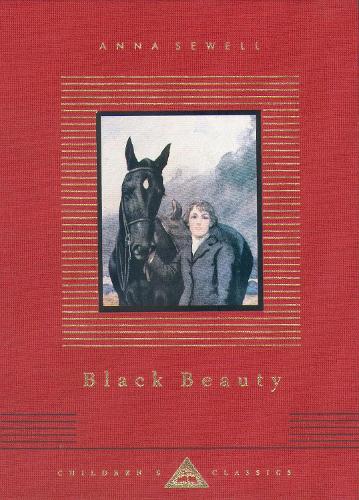
Black Beauty
(Hardback)
Available Formats
Paperback
Published: 1st January 2016
Hardback
Published: 22nd October 2019
Paperback
Published: 8th July 2025
Paperback
Published: 1st August 2010
Hardback, Adapted edition
Published: 1st June 2022
Paperback, Classics ed
Published: 1st March 2003
Paperback
Published: 1st August 2012
Paperback
Published: 4th January 2011
Paperback
Published: 1st November 2014
Paperback, New edition
Published: 5th April 1993
Hardback
Published: 11th September 2018
Hardback
Published: 29th October 2010
Hardback
Published: 1st October 2004
Paperback
Published: 30th July 2021
Paperback
Published: 12th December 2000
Hardback
Published: 3rd July 2017
Paperback
Published: 1st February 2025
Hardback
Published: 1st March 2025
Hardback
Published: 28th January 1994
Paperback
Published: 1st September 2010
Publishing Details
Black Beauty
By (Author) Anna Sewell
Everyman
Everyman's Library Children's Classics
28th January 1994
4th November 1993
United Kingdom
Classifications
Children
Fiction
823.8
Runner-up for The BBC Big Read Top 100 2003
Physical Properties
Hardback
288
Width 164mm, Height 210mm, Spine 23mm
553g
Description
Described on the title-page of the first edition as 'the autobiography of her horse, translated from the original equine', BLACK BEAUTY was Anna Sewell's only book, written when she fatally ill but determined to record her passopnate indignation at the insensitive behaviour of people towards animals. It has been loved by children ever since its first publication in 1877, just a few months before the death of its author, whose declared aim had been to 'induce kindness, sympathy and an understanding treatment of horses'. The illustrations by Lucy Kemp-Welch first apperared in 1915.
Author Bio
Anna Sewell was born in 1820 and lived with her family in Norfolk and then in a village on the outskirts of London. At the age of fourteen Anna injured her ankles in a fall, and was severely disabled for the rest of her life. She had to travel everywhere in horse-drawn carriages, and so Anna was always concerned with the treatment of the animals she so relied upon. She wrote Black Beauty in order to convince a wide audience of the importance of the humane treatment of animals. It is her only novel, and Anna Sewell died shortly after it's publication, little guessing how well-known and widely loved her story would become.
